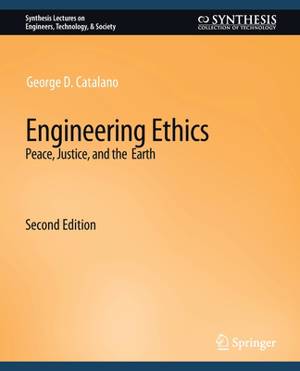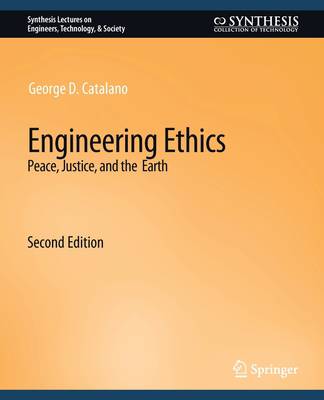
- Afhalen na 1 uur in een winkel met voorraad
- Gratis thuislevering in België vanaf € 30
- Ruim aanbod met 7 miljoen producten
- Afhalen na 1 uur in een winkel met voorraad
- Gratis thuislevering in België vanaf € 30
- Ruim aanbod met 7 miljoen producten
Zoeken
€ 29,95
+ 59 punten
Uitvoering
Omschrijving
A response of the engineering profession to the challenges of security, poverty and underdevelopment, environmental sustainability, and native cultures is described. Ethical codes, which govern the behavior of engineers, are examined from a historical perspective linking the prevailing codes to models of the natural world. A new ethical code based on a recently introduced model of Nature as an integral community is provided and discussed. Applications of the new code are described using a case study approach. With the ethical code based on an integral community in place, new design algorithms are developed and also explored using case studies. Implications of the proposed changes in ethics and design on engineering education are considered. Table of Contents: Preface / Acknowledgments / Introduction / Engineering Ethics / Models of the Earth / Engineering in a Morally Deep World / Engineering Design in a Morally Deep World / Implications for Engineering Education / Final Thoughts / References / Author's Biography
Specificaties
Betrokkenen
- Auteur(s):
- Uitgeverij:
Inhoud
- Aantal bladzijden:
- 69
- Taal:
- Engels
- Reeks:
Eigenschappen
- Productcode (EAN):
- 9783031009877
- Verschijningsdatum:
- 26/08/2014
- Uitvoering:
- Paperback
- Formaat:
- Trade paperback (VS)
- Afmetingen:
- 190 mm x 235 mm
- Gewicht:
- 167 g

Alleen bij Standaard Boekhandel
+ 59 punten op je klantenkaart van Standaard Boekhandel
Beoordelingen
We publiceren alleen reviews die voldoen aan de voorwaarden voor reviews. Bekijk onze voorwaarden voor reviews.











